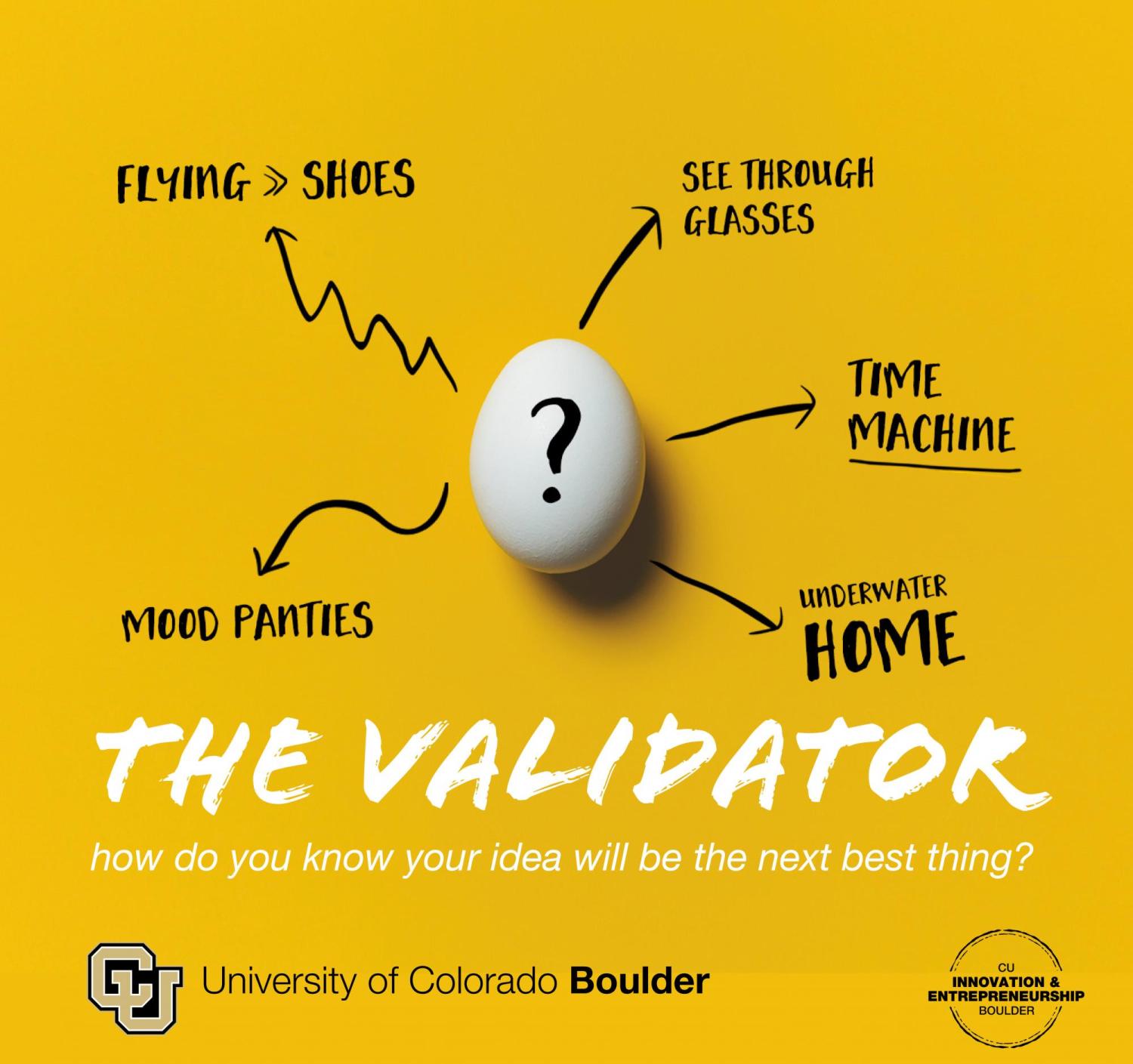Validator Helps Students Test Early Stage Ideas

As mentors, experts, staff, and professors who care about nurturing the entrepreneurial spirit, we get approached by students who are eager to put their ideas into action. Want to tell us about your new service to improve 2am food delivery on campus or how you're going to disrupt the burrito market? Taking meetings with students to discuss all kinds of ventures is part of what this campus-wide innovation & entpreneurship work is all about.
But let's be honest, most student ideas are far from being ready to go to market. Even if students have the most polished business plan, oftentimes their ideas have not been tested outside of the campus perimeter, or dare we say, many students have not even talked with real users to get user input. Ideas are a dime a dozen, but no one knows if there's demand until they do user research.
That's where the Validator comes in. While we encourage students to participate in the New Venture Challenge, our campus-wide venture competition which happens each spring, to get experience in developing and pitching venture ideas, we realized that, as a campus, we were not preparing students adequately enough. Most students skipped the stage of testing whether or not their idea had legs and were entering NVC with all kinds of early stage concepts. So, we decided to create a program that solely focused on step one, hypothesis testing and problem identification. That's where the Validator comes in.
The Validator is a co-curricular program launched this fall semester, and the motto is "No pain, No gain", which means if you don't know the pain point then the idea will never go anywhere. Its aim is purely to get students to focus on the problem their solving and nail the pain point before they jump to the solution. The program design is simple and effective. On Tuesday nights for two-hours, we invite mentors and students to come to the Startup Hub and spend time poking holes into ideas. We're not problem solving, and we're not business planning. We're simply using the Socratic method to ask a lot of questions to help students think more critically about their idea.
How It Works
There are four parts to the Validator: 1) Find the pain, 2) test the pain, 3) fall in love (or out of love) with the pain, and 4) turn pain into gain. Mentors are trained on these four parts beforehand, and use them as a guide to figure out what students need to focus on during the weekly sessions. For instance, first, we help students write a problem statement and drill into who they are solving the problem for. Next, if students are ready to test their problem statement, mentors coach them on how to conduct interviews and do observations. Then, if students conducted interviews and gathered user data, we talk with them about how to interpret that data and refine their hypothesis.
We arrange the weekly sessions into small group discussions. Each groupd has two mentors and about three to four students. This way, the mentors get to play off of each other and provide varying expertise, and students get to listen and learn from each other. One at a time, students share his or her idea, and the group asks questions for ten to fifteen minutes before moving onto the next person. The evenings are both structured and organic, adapting and flowing with whatever students need and whatever stage they are in.
Get Involved
We put out a call for mentors to help in the Validator through our entrepreneurial mentor network (sign up if you aren't already), and we ask students to register beforehand or just drop-in.


